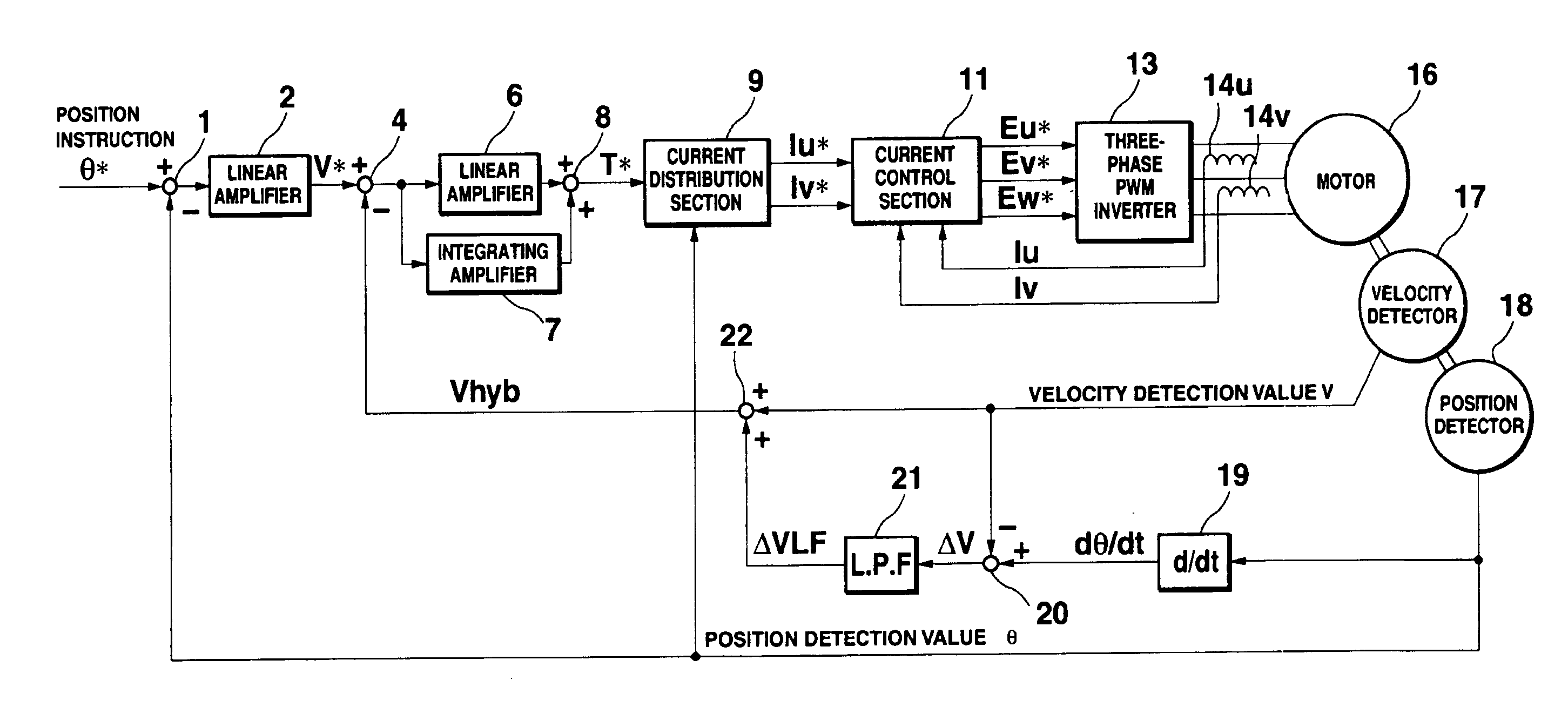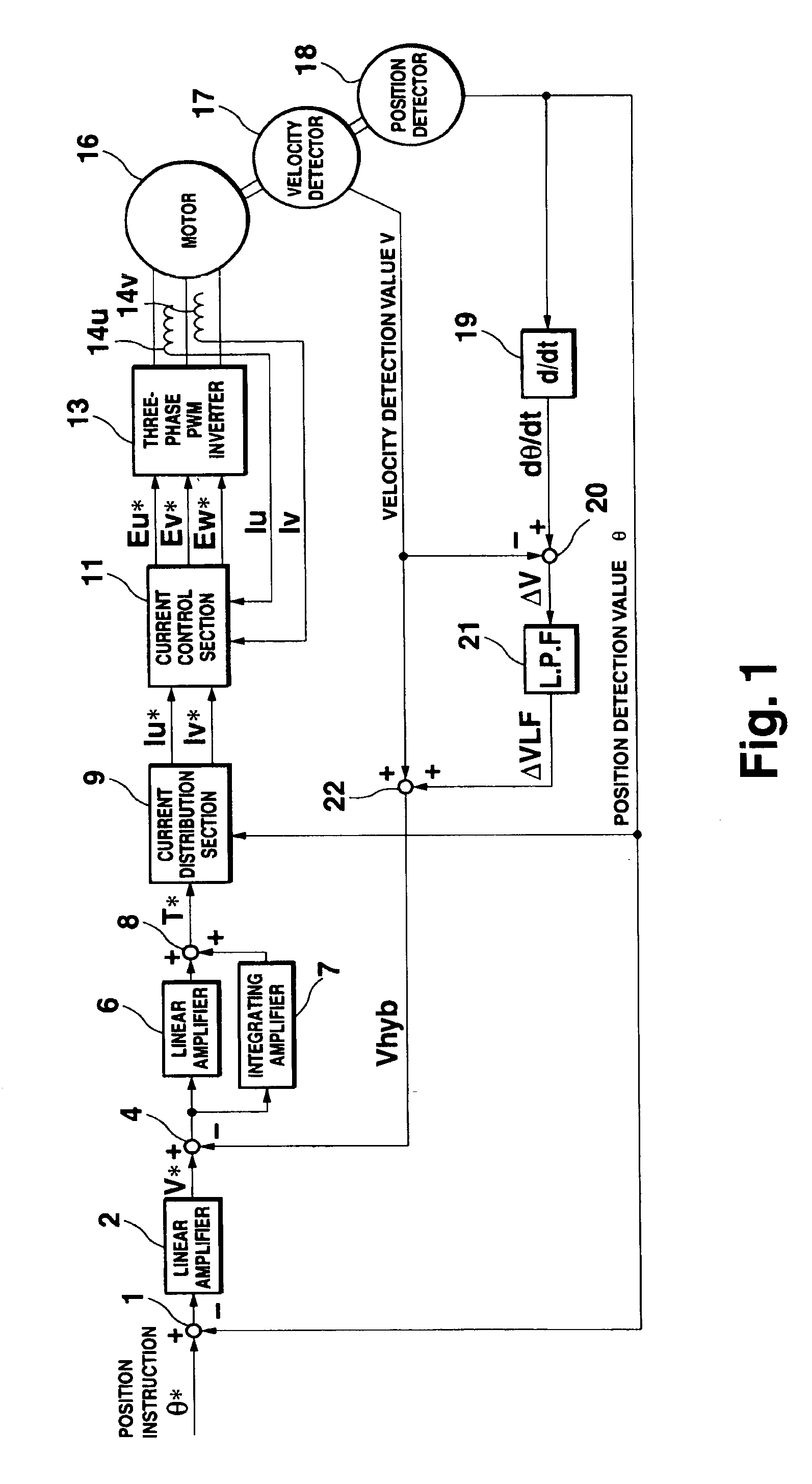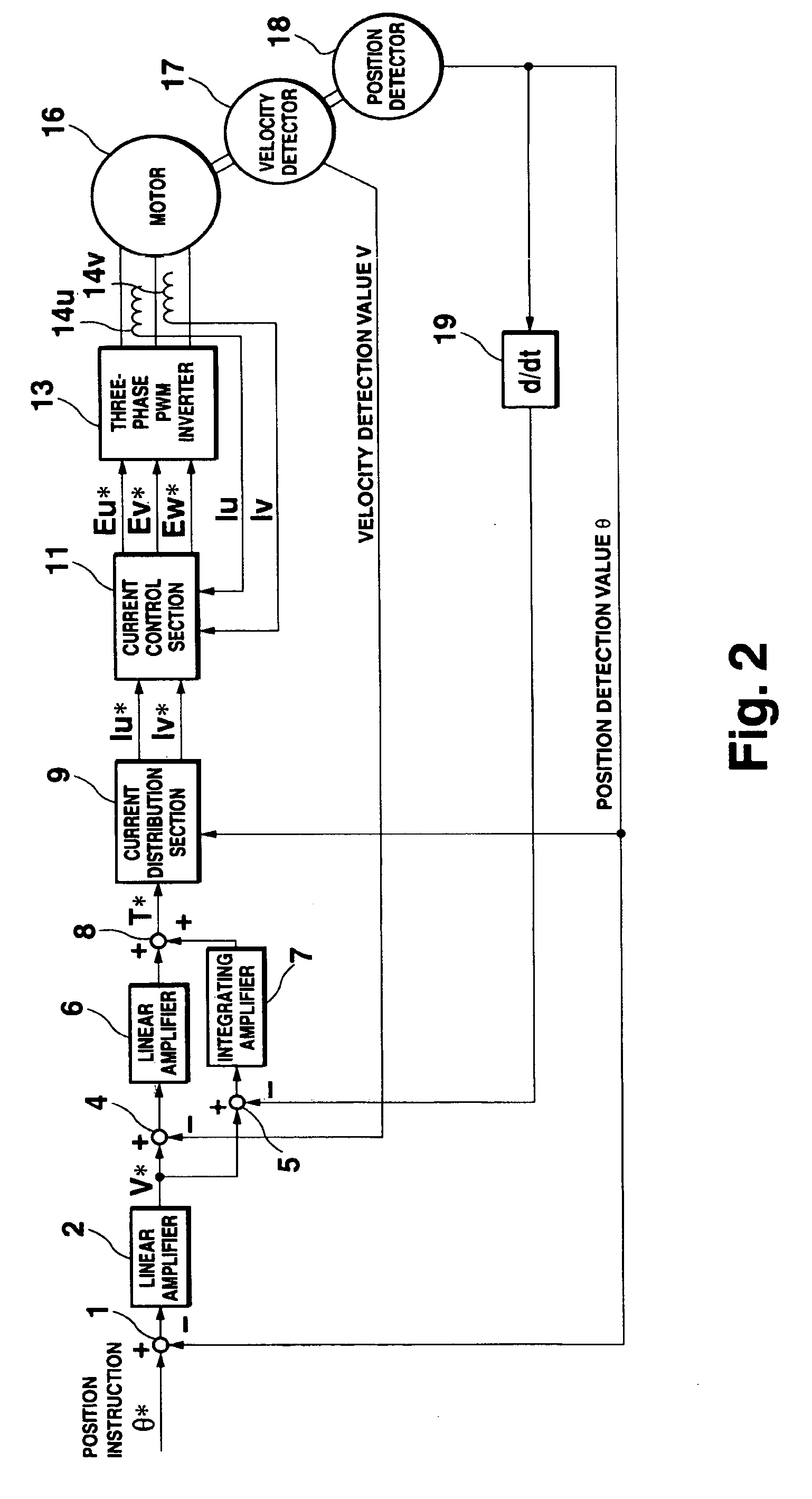Motor control apparatus for controlling operation of mover of motor
a technology of motor control and motor control, which is applied in the direction of electric programme control, electric controller, dynamo-electric converter control, etc., can solve the problems of deteriorating the control characteristics of the motor, requiring high precision, and relatively large amount of error components in the high frequency response, so as to reduce the gain error or offset error, improve the accuracy of correction, and improve the effect of accuracy
- Summary
- Abstract
- Description
- Claims
- Application Information
AI Technical Summary
Benefits of technology
Problems solved by technology
Method used
Image
Examples
first embodiment
[0040](1) First Embodiment
[0041]FIG. 1 schematically shows a structure of a motor control apparatus according to a first embodiment to the present invention. The motor control apparatus of the present embodiment includes subtractors 1 and 4, an adder 8, linear amplifiers 2 and 6, an integrating amplifier 7, a current distribution section 9, current control section 11, a three-phase PWM inverter 13, a position detector 18, a differentiator 19, and so on, each having the same function and the same reference numeral as the corresponding element in the related art structure shown in FIG. 12.
[0042]The motor control apparatus of the present embodiment differs from those of the related art in that a velocity detector 17, a subtractor 20, a low pass filter 21, and an adder 22 are provided, and that a velocity feedback signal Vhyb to be input to the subtractor 4 is computed according to a method different from that of the related art. The velocity feedback signal Vhyb is generated based on a...
second embodiment
[0045](2) Second Embodiment
[0046]FIG. 2 schematically shows a structure of a motor control apparatus according to a second embodiment of the present invention. The motor control apparatus of the present embodiment includes subtractors 1 and 4, an adder 8, linear amplifiers 2 and 6, an integrating amplifier 7, a current distribution section 9, current control section 11, a three-phase PWM inverter 13, a position detector 18, a differentiator 19, and so on, each having the same function and the same reference numeral as the corresponding element in the related art structure shown in FIG. 12.
[0047]The motor control apparatus of the present embodiment differs from the related art in that two velocity information items, namely a velocity detection value V from the velocity detector 17 and a velocity calculation value dθ / dt obtained by time differentiation of a position calculation (detection) value θ output from the position detector 18, are first obtained as a velocity feedback signal. ...
third embodiment
[0050](3) Third Embodiment
[0051]FIG. 3 schematically shows a structure of a motor control apparatus according to a third embodiment of the present invention. The motor control apparatus of this embodiment has a structure similar to that of the second embodiment, and elements having the same functions as those in the second embodiment are denoted by the same numerals.
[0052]The motor control apparatus of the third embodiment differs from the motor control apparatus of the second embodiment in that a velocity detection value correction section 23 is additionally provided. The velocity detection value V is corrected by the velocity detection value correction section 23 and the corrected velocity detection value Vc is input to the subtractor 4 as a feedback signal.
[0053]The velocity detection value correction section 23 has a structure shown in the block diagram of FIG. 4. The velocity detection value V and the position detection value θ are input to the velocity detection value correcti...
PUM
 Login to View More
Login to View More Abstract
Description
Claims
Application Information
 Login to View More
Login to View More - R&D
- Intellectual Property
- Life Sciences
- Materials
- Tech Scout
- Unparalleled Data Quality
- Higher Quality Content
- 60% Fewer Hallucinations
Browse by: Latest US Patents, China's latest patents, Technical Efficacy Thesaurus, Application Domain, Technology Topic, Popular Technical Reports.
© 2025 PatSnap. All rights reserved.Legal|Privacy policy|Modern Slavery Act Transparency Statement|Sitemap|About US| Contact US: help@patsnap.com



